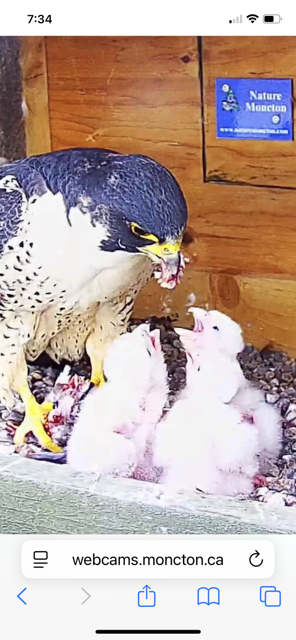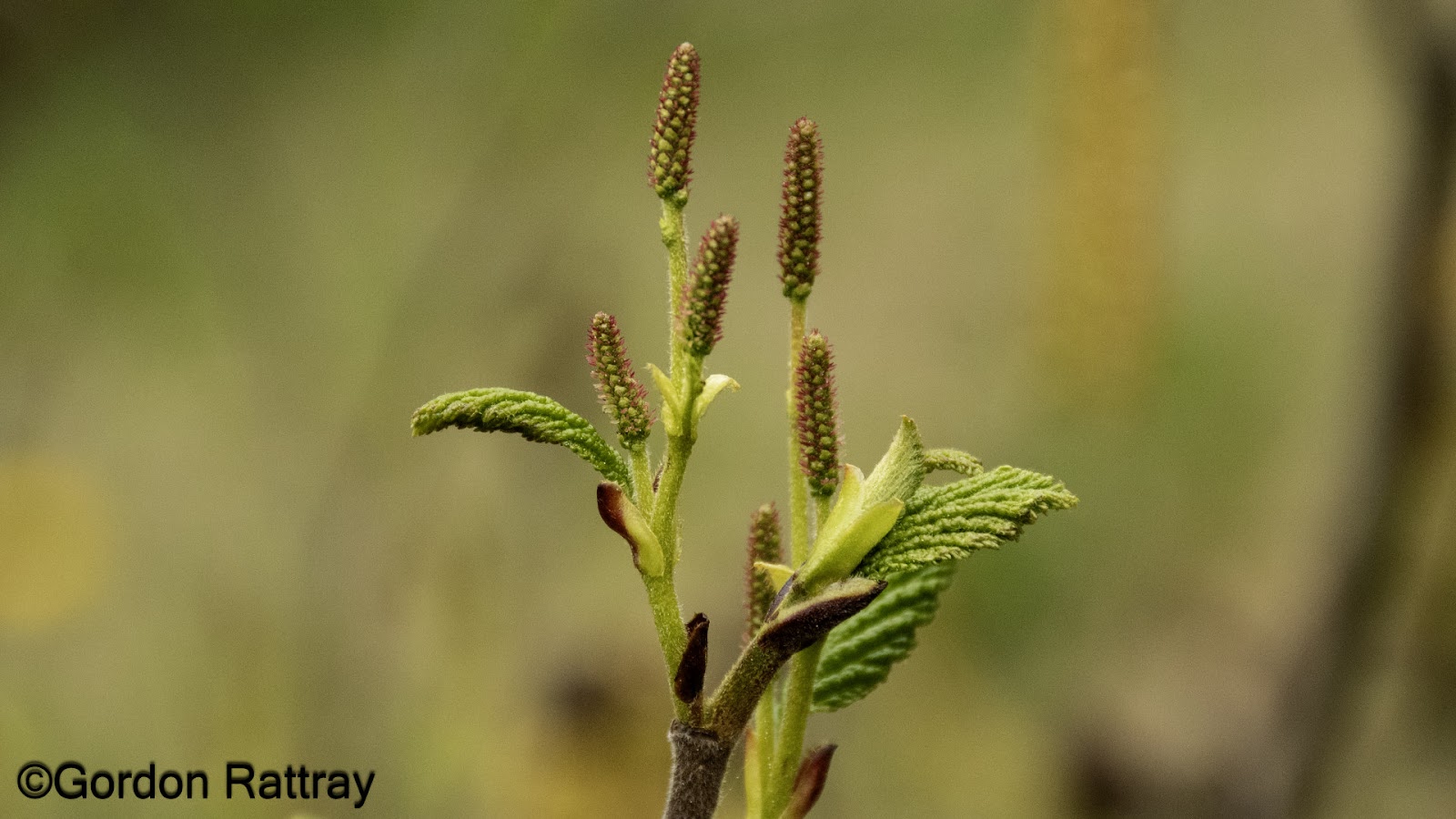NATURE
MONCTON NATURE NEWS
May 26, 2025
Nature Moncton members, as
well as any naturalist in New Brunswick or beyond, are invited to share
their photos and descriptions of recent nature sightings to build a fresh
(almost) daily edition of Nature News
To
respond by e-mail, please address your message to the information line
editor, nelsonpoirier435@gmail.com .
Please
advise the editor at nelsonpoirier435@gmail.com and the proofreader
Louise Nichols at Nicholsl@eastlink.ca if
any errors are noted in wording or photo labelling.
For more information
on Nature Moncton, check the website at www.naturemoncton.com
Proofreading
courtesy of Nichols nicholsl@eastlink.ca
To
view the live feed of the Peregrine Falcon nest cam on the summit of Assumption
Place in Moncton, go to:
**Cathy Simon was very surprised to hear a male bobolink singing while she worked in her yard in Lutes Mountain on Saturday afternoon. It vocalized for four hours from her next-door neighbor's backyard, which has very tall, unmowed grass.
(Editor’s note: The bobolink prefers a
habitat of open grassland and large fields, so having one near a dwelling is a
bonus. Harvesting too early where they nest in grassland fields has reduced their
numbers.
The male bobolink is one of the few bird
species that has white plumage on the dorsal aspect and dark plumage on the
ventral aspect.)
**Brian Coyle got out to a couple of trail
cameras Sunday morning at a beaver pond. The date stamp is correct; these two river
otters arrived just a few hours before Brian did. This otter
"latrine" continues to be used over and over. Take note of the poop
dance!
The two river otters appear to be enjoying themselves
immensely as they scent mark. Look at those canines!
One video captures a coyote that seems
to be quite unconcerned about the trail camera and looks rather lean after
donning the lighter summer coat. Take a look at the action at the two links
below:
**David Lilly has many photos to share from his week on Grand Manan, 16 - 23 May 2025, in spite of rather unfavourable weather.
David will spread them out over the week. Today will feature a male black-throated green warbler.
**Gordon Rattray
explored a gypsum quarry in Albert Mines and photographed several shrubs.
The buffalo berry is found only in this area in southern NB and in northern NB. Gordon also found green and speckled
alders; the green alder is less common than the speckled. Note that
in the photo of the male and female, last year's seed pods are visible in the background.
Gordon also includes a photograph of the seed pods of the pussy willow.
**Lisa Morris comments that it’s been hard to check on the peregrine
falcon chicks in this weather! The unhatched egg is still amongst them (as of
May 24 evening) - amazing how it doesn’t get broken with the three little ones
growing and squirming under mama’s wings.
(Editor’s note: It is evident by now that
this is an infertile egg; however, we have learned that the parents will
continue to tend an infertile egg. It will make for one less mouth to feed,
which is a positive for the parents.)
Lisa shares a few webcam screenshots of the three peregrine
chicks Saturday night as Mom flew off, but very promptly returned with dinner
(I don’t think it was a ‘blue’ menu this time (i.e. bluejay). Lisa comments “Amazing
skill of Mama to ‘sit’ that long (especially in this cold rain). I wonder if
she would suffer muscle atrophy from being inactive for such long periods.”
**Aldo Dorio still has an eastern bluebird
couple checking out a birdhouse in his Neguac yard; however, they have not yet
occupied the nest box. One would wonder if the very cool weather has caused
them to put things on hold. Hopefully, that will all change with an increased
temperature and the Sun finally about to arrive.
**Flying squirrels are regular patrons
to Nelson Poirier’s feeders and are becoming quite accustomed to human presence
as Nelson and Finn often do a nightly admiration check. They have a strong
preference for sunflower chips.
Nelson also took note of the woodland plants,
goldthread, and dwarf ginseng. The photo of goldthread shows the exposed,
brilliant yellow rhizome that gives this plant its name. The rhizome has been
used for medical purposes in the past as it contains the alkaloids berberine and
coptine.
The route of dwarf ginseng consists of a
tuber that can be used as an edible, raw or boiled, with a pleasant nutty flavour.
Nelson Poirier.
Nature Moncton

















